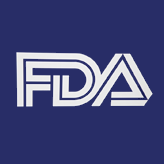VIDEO:
Richard S. Finn, MD, on Second-Line Regorafenib in Sorafenib-Tolerant HCC Patients
The FDA has approved regorafenib (Stivarga) for the second-line treatment of hepatocellular carcinoma (HCC) for patients who have previously received sorafenib.
Overall survival was improved by nearly 3 months for patients on regorafenib

The US Food and Drug Administration (FDA) has approved the oral, multi-kinase inhibitor regorafenib (Stivarga) for the second-line treatment of hepatocellular carcinoma (HCC), the first new drug for this disease in a decade, for patients who have previously received sorafenib.
“Limited treatment options are available for patients with liver cancer,” said Richard Pazdur, MD, acting director of the Office of Hematology and Oncology Products in the FDA’s Center for Drug Evaluation and Research, in a press release. “This is the first time patients with HCC have had an FDA-approved treatment that can be used if their cancer has stopped responding to initial treatment with sorafenib.”
The approval of regorafenib was based on results of a randomized multicenter trial that included 573 HCC patients whose disease had progressed on sorafenib.
VIDEO:
Richard S. Finn, MD, on Second-Line Regorafenib in Sorafenib-Tolerant HCC Patients
Patients in the trial received best supportive care plus either 160-mg oral regorafenib once per day or placebo for 21 days of a 28-day cycle. Patients were continued on regorafenib until disease progression or unacceptable toxicity.
Results of the trial showed that patients receiving regorafenib had an improvement in progression-free survival based on modified RECIST (hazard ratio [HR], 0.46; 95% CI, 0.37–0.56; P < .0001), with a median progression-free survival of 3.1 vs 1.5 months with placebo. Overall survival was also improved in patients on regorafenib (HR, 0.63; 95% CI, 0.50–0.79; P < .0001), with a median overall survival of 10.6 months vs 7.8 months with placebo.
The overall response rate based on modified RECIST was 11% vs 4% in favor of regorafenib.
The most common adverse events (> 20%) associated with the drug were asthenia, decreased appetite, diarrhea, dysphonia, elevated bilirubin, fever, hand-foot skin reaction, hypertension, infection, mucositis, nausea, pain, rash, and weight loss.
The recommended dose for regorafenib is 160 mg daily, taken in four 40-mg tablets, for the first 21 days of each 28-day cycle. It is recommended that the drug be taken after a low-fat meal.